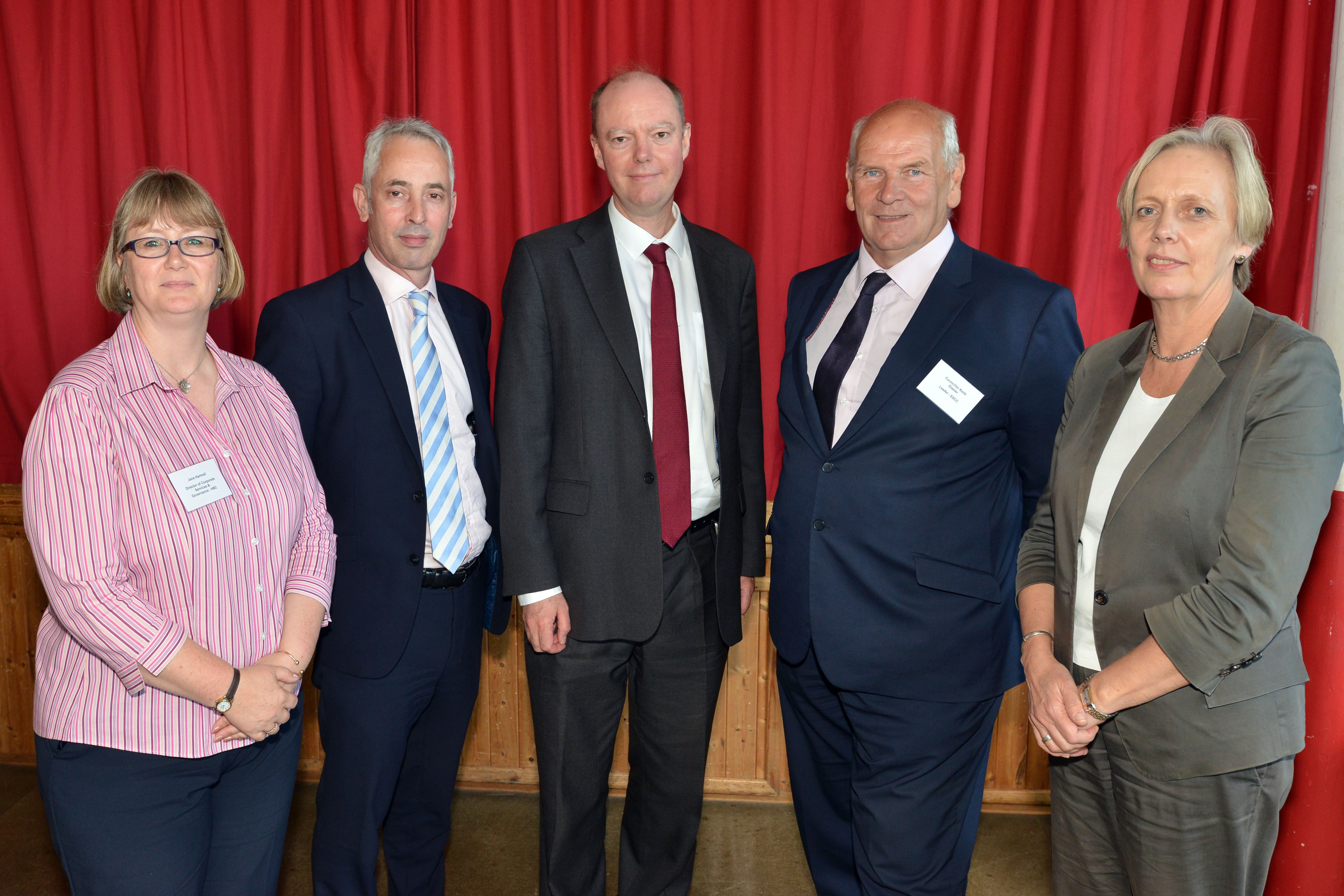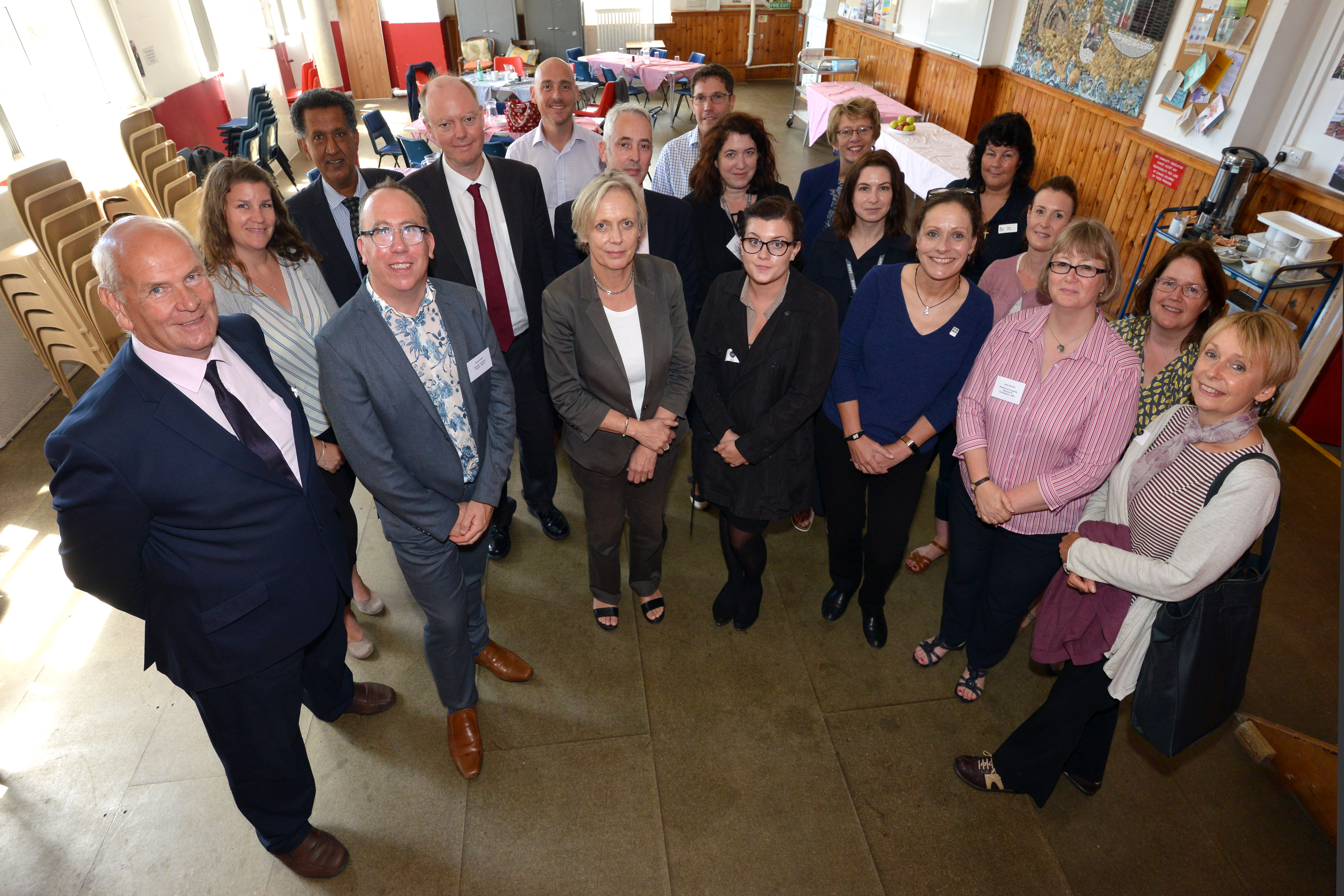Developing a sustainable approach to improving health in our town
Health bosses in East Sussex highlighted challenges and showcased successes when they welcomed a leading government adviser to Hastings.
Professor Chris Whitty, the Chief Scientific Adviser to the Department of Health and Social Care and National Institute for Health Research lead, visited the borough as part of a countrywide tour of local authorities to hear how residents’ health and wellbeing could benefit from research opportunities.

Pictured from left; Jane Hartnell, Director of Corporate Services and Governance at Hastings Borough Council; Rupert Clubb, Director of Communities, Economy and Transport at East Sussex County Council; Professor Chris Whitty; Councillor Keith Glazier, leader of East Sussex County Council and Dame Professor Anne Johnson, Chair of the UK Strategic Co-ordinating Body for Health of the Public Research (SCHOPR).
The visit was organised by Public Health at East Sussex County Council (ESCC) in partnership with Hastings Borough Council (HBC), Hastings and Rother Clinical Commissioning Group and Hastings Voluntary Action.
Welcoming the visit, Darrell Gale, director of public health at ESCC, said: “Health outcomes for the people of Hastings and Saint Leonard’s are often poorer than in the rest of Sussex and the South East, yet there are great examples of community action and agencies working together in the town.
“This visit helped to shine a light on the many positive achievements over the years, while clearly focusing on the need to develop sustainable approaches to improving health for all in the town.”

The visit concentrated on the work being done to improve the health and wellbeing of residents by focusing on personal and community resilience and reducing health inequalities, including;
• The Chances 4 Change programme which supports charities, community groups and individuals to make the most of their community assets
• An integrated healthy lifestyle service which offers tailored, support to enable individuals to make changes to the lifestyle health behaviours
• The Healthy Hastings and Rother Programme which uses insight of individuals and communities to better understand how access to health and other services can be improved for those with the poorest health
Dr David Warden, chair of NHS Hastings and Rother CCG and Richard Watson, health inequalities manager for the CCG, said they were ‘proud’ to have had the opportunity to contribute to Professor Whitty’s visit and share the impact that Healthy Hastings and Rother has had.
“The NHS, along with many partner organisations, is working to improve local services for those with the poorest health in our most disadvantaged communities and together we have made some real progress to address health inequality in Hastings,” Dr Warden said
“The NHS Long Term Plan commits it to a greater focus on prevention and reducing health inequalities and we will continue to work tirelessly with local people, communities and partners to support people to live healthier and happier lives,” said Mr Watson.
With almost one third of Hastings residents living in an area that is among the most deprived in England and with male life expectancy among the lowest in the country, it is hoped that further research can result in greater opportunities to address health inequalities in the area.
Councillor Kim Forward, HBC’s lead councillor for regeneration, said: “The needs of seaside communities is well known; we are very pleased Prof Whitty visited Hastings with his team to learn first-hand the challenges faced by residents of of the town to improve their lives and wellbeing.
“We also appreciate the areas he chose to visit and the time he spent talking directly to many of the local organisations supporting our residents to lift themselves out of poverty and poor health. We believe this is achievable and sustainable through longer strategic programmes.”
Speaking after his visit Professor Whitty said: “As many health issues are linked to lifestyle, it has been very interesting to hear about the really impressive work in Hastings to change behaviours through personalised approaches. Like many parts of the country, health inequalities are an issue for the people of Hastings and research will help overcome the challenges they pose.”
Following Professor Whitty’s visit, a meeting will be held between public health, partner organisations and elected members for the wards visited during the day. The aim of the meeting will be to agree the next steps and to ensure that partners gain from working ever closer together.



